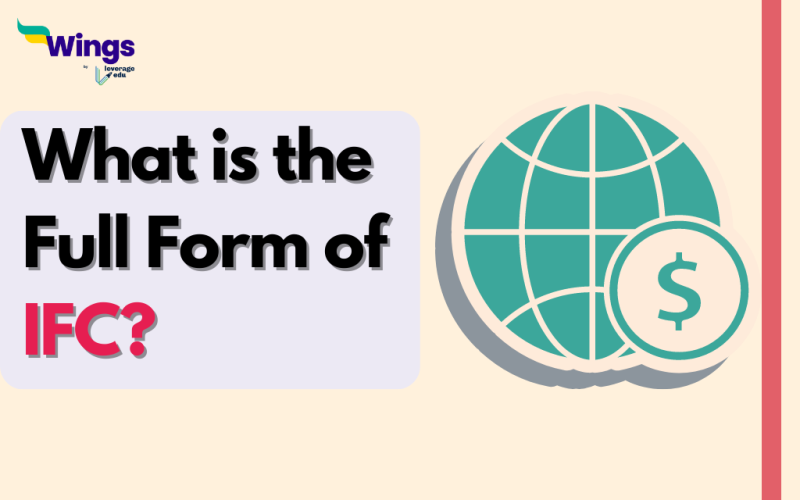IFC Full Form: The full form of IFC is International Finance Corporation. The International Finance Corporation is the World Bank Group’s private sector arm that shares its aim of reducing worldwide poverty.
To that end, IFC provides development-impact solutions via firm-level interventions such as direct investments, consultancy services, and the IFC Asset Management Company.
The IFC coordinates its efforts with the other World Bank Group organisations, but it is legally and financially independent. IFC provides a wide range of financing instruments to developing-country private-sector projects. A project must meet specific requirements to be eligible for IFC funding.
History of IFC
Table of Contents [show]
The International Finance Corporation was founded in 1956. The International Finance Corporation was founded as a commercial affiliate of the World Bank. The IFC’s headquarters are in Washington, D.C., the United States.
Delegates established the World Bank and International Monetary Fund at the Bretton Woods Summit in 1944. The International Bank for Reconstruction and Development, the World Bank’s sole member at the time, began operations in 1946.
When Robert L. Garner joined the World Bank as a senior executive in 1947, he expressed his opinion that private enterprise might play an important role in global development. In 1950, Garner and his colleagues proposed establishing a new organisation to make private investments in the poor countries that the World Bank aided.
The World Bank and an international firm were encouraged to collaborate in order to invest in private businesses without relying on government guarantees, without managing those businesses, and with the assistance of outside investors.
In 1955, World Bank President Eugene R. Black stated that the IFC would not manage the projects in which it participated and would solely invest in private enterprises rather than give money to governments.
Purpose of Establishing IFC
Here are some of the purposes that were behind establishing IFC:
- In collaboration with private sector investors, the IFC aspires to fund the establishment, enhancement, growth, and extension of private sector industries while also paving the path for the development of its member countries.
- IFC strives to attract new investment possibilities, private finance from both domestic and foreign sources, and professional management.
- In addition, the IFC attempts to stimulate and establish favourable conditions for smooth national and international private capital flow into significant and productive investments in member countries.
Objectives of IFC
- The IFC promotes the flow of private money (both domestic and foreign).
- IFC also promotes the growth of private capital markets in developing and underdeveloped economies.
- The International Finance Corporation (IFC) even encourages the private sector in developing economies by financing private sector projects, providing guidance and technical assistance to industries and governments, and assisting developing-economy companies in mobilising their funds in global financial markets.
- IFC also serves as a clearinghouse for private funds, experienced management, and investment opportunities.
- IFC aggressively invests in productive private industries in collaboration with private sector investors, focusing on regions where needed private capital is not flowing for legitimate reasons.
Strategies of IFC
Here are some of the strategies that IFC follows to achieve its goals:
- The first strategy is to focus more on frontier markets (IDA and non-IDA economies) and FCS (fragile and conflict situations).
- The second strategy addresses issues such as climate change, social and environmental sustainability, and so on.
- The third strategy is to promote the expansion of the private sector, which includes the food supply chain, health, education, and water.
- The fourth strategy is to promote the growth of local and national financial markets through the establishment, usage, and mobilisation of more innovative financial products, with an emphasis on MSMEs (micro, small, and medium enterprises).
- The fifth and final strategy is to cultivate and sustain long-term partnerships with clients in developing economies by maximising the use of its products and services and fostering transboundary growth.
Must Read: What is the Full Form of ODL?
Must Read: What is the Full Form of WHO?
This was all about IFC Full Form. Do you want to know more full forms like this? In the world of short forms, you can rely on our page to know more! Get in touch with our study abroad experts to achieve your international dream today!
 One app for all your study abroad needs
One app for all your study abroad needs















 45,000+ students trusted us with their dreams. Take the first step today!
45,000+ students trusted us with their dreams. Take the first step today!
